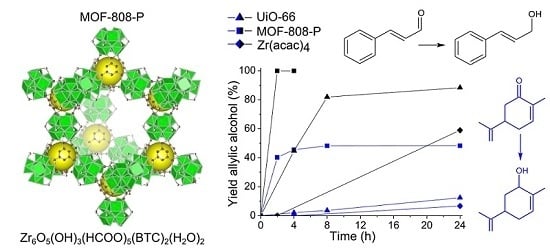Zr-Based MOF-808 as Meerwein–Ponndorf–Verley Reduction Catalyst for Challenging Carbonyl Compounds
Abstract
Share and Cite
Plessers, E.; Fu, G.; Tan, C.Y.X.; De Vos, D.E.; Roeffaers, M.B.J. Zr-Based MOF-808 as Meerwein–Ponndorf–Verley Reduction Catalyst for Challenging Carbonyl Compounds. Catalysts 2016, 6, 104. https://doi.org/10.3390/catal6070104
Plessers E, Fu G, Tan CYX, De Vos DE, Roeffaers MBJ. Zr-Based MOF-808 as Meerwein–Ponndorf–Verley Reduction Catalyst for Challenging Carbonyl Compounds. Catalysts. 2016; 6(7):104. https://doi.org/10.3390/catal6070104
Chicago/Turabian StylePlessers, Eva, Guangxia Fu, Collin Yong Xiang Tan, Dirk E. De Vos, and Maarten B. J. Roeffaers. 2016. "Zr-Based MOF-808 as Meerwein–Ponndorf–Verley Reduction Catalyst for Challenging Carbonyl Compounds" Catalysts 6, no. 7: 104. https://doi.org/10.3390/catal6070104
APA StylePlessers, E., Fu, G., Tan, C. Y. X., De Vos, D. E., & Roeffaers, M. B. J. (2016). Zr-Based MOF-808 as Meerwein–Ponndorf–Verley Reduction Catalyst for Challenging Carbonyl Compounds. Catalysts, 6(7), 104. https://doi.org/10.3390/catal6070104






